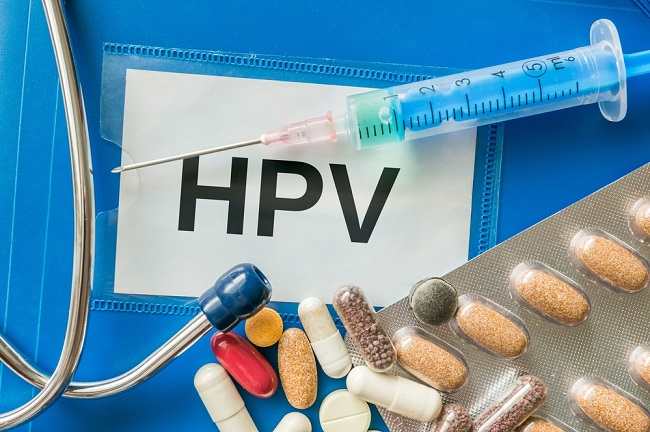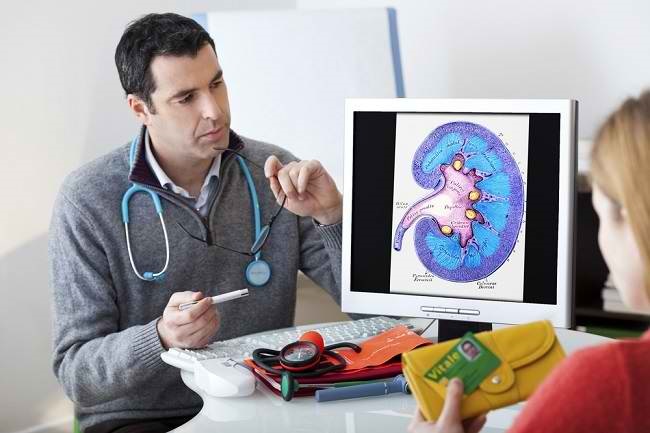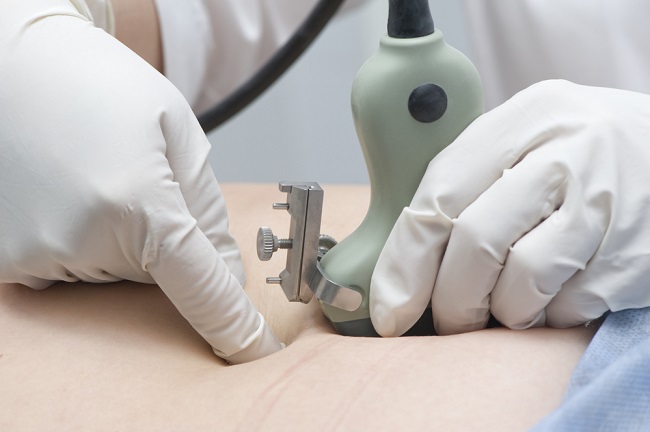Thyroid disorders are conditions in which the thyroid gland does not function properly. This condition can happen to anyone, including mothers and children, and can cause very dangerous problems in various organs of the body. Recognize what are the dangers of thyroid disorders in mother and child.
The thyroid is a butterfly-shaped gland located in the middle of the front of the neck. This gland produces thyroid hormone which functions to control almost all metabolic processes in the body. Because the role of thyroid hormone is very important for the body, thyroid gland disorders can have a very big impact.

Thyroid disorders can cause thyroid hormone production to be less or even excessive. A condition in which there is too little thyroid hormone in the body is called hypothyroidism, while a condition in which thyroid hormone levels are too high is called hyperthyroidism.
This is the Danger Behind Thyroid Disorders in Mothers
Women are more at risk of developing thyroid disorders than men. Thyroid disorders in women, both hyperthyroid and hypothyroid, can cause menstrual cycle disorders, fertility problems, and harm to the womb and fetus if it occurs in pregnant women.
Hyperthyroidism in mother
Hyperthyroid conditions will cause an increase in metabolism and organ work, including the heart. At first, the symptoms of hyperthyroidism are not very significant, so you may not pay much attention to them. However, over time, hyperthyroidism can cause a variety of complaints, such as:
- Tremor
- Drastic weight loss
- Fast or irregular heartbeat
- Hard to sleep
- Often feel nervous or anxious
- Often feel stifling even though the air temperature is not hot
- Sweat a lot
- Diarrhea or more frequent bowel movements
- Eyes bulge out, often irritated, and look red
Hyperthyroidism during pregnancy is not treated at risk of miscarriage, premature birth, preeclampsia, fetal heart rate too fast, or babies born with low birth weight, even with heart failure conditions.
Hypothyroidism in mother
In contrast to hyperthyroidism, hypothyroidism can slow down the functioning of the organs in general. Symptoms of hypothyroidism also progress slowly. At first, you may often feel tired, and over time you will experience various other complaints due to the slow metabolism of the body.
The following are some of the symptoms that can appear in the condition of hypothyroidism:
- Constipation
- Hoarseness
- Joint or muscle pain
- Dry and pale skin
- Hair loss
- Slow heart rate
- Hard to sweat
- Swollen face
- Often feel sad or depressed
- Weight gain, even if you don't eat much
- Menstruation becomes more frequent
- Feeling cold even when the air is not cold
Hypothyroidism during pregnancy that is not treated properly can cause anemia, preeclampsia, and miscarriage in pregnant women, or the baby is born dead. Babies born to mothers with hypothyroidism are also at risk of experiencing disturbances in brain growth and development.
The Dangers Behind Thyroid Disorders in Children
Although more commonly experienced by adults, children and infants can also experience thyroid disorders, especially hypothyroidism. Hypothyroidism from birth is called congenital hypothyroidism or congenital hypothyroidism.
Most cases of congenital hypothyroidism occur because the thyroid gland is not formed properly during the baby in the womb. The main cause is genetic abnormalities in the fetus. However, this condition can also occur due to iodine deficiency in pregnant women.
Symptoms of congenital hypothyroidism generally appear a few weeks or months after the baby is born. The symptoms are as follows:
- yellow skin
- Constipation
- Quick breath
- Big and swollen tongue
- Swelling around the eyes
- Big belly with navel sticking out
- Sleep longer or more often
Untreated congenital hypothyroidism can cause problems in child development and cause children to experience speech disorders, walking disorders, to mental retardation.
Thyroid disorders in both mother and child can lead to dangerous complications. In fact, if thyroid disorders are detected early, these complications can be prevented, although treatment must be carried out in the long term.
Therefore, screening or examination of thyroid disorders is very important to do. Thyroid disorder screening can be done when the baby is 48–72 hours old, or at least before he is 2 weeks old. If it turns out that the baby has a thyroid disorder, the doctor will immediately provide treatment so that the baby's growth and development is not disturbed.
While in adults, screening for thyroid disorders can be done by: self neck-checking or self-examination of the neck. You can do this examination yourself at home to determine whether there is a lump in the neck, because this symptom is usually not realized until the lump is large enough.
In addition, you also need to be aware of the symptoms of hypothyroidism and hyperthyroidism that may occur. If you feel symptoms of hypothyroidism or hyperthyroidism, with or without a lump in the neck, you should immediately consult a doctor.









